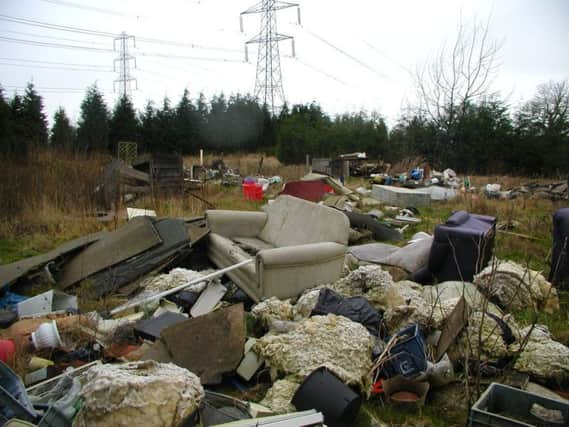YP Comment: Fly-tipping rise


This is nothing new, of course, but what is particularly worrying is the fact it is increasing, with official figures showing the number of incidents having risen for the third year in a row. According to Defra, councils across England reported 936,090 cases of fly-tipping in 2015/2016, up four per cent on the previous 12 months.
Last year, local authorities were handed new powers in an attempt to crack down on the problem, including on-the-spot fines of £400 for those caught red-handed, though it remains to be seen what impact this has had.
Advertisement
Hide AdAdvertisement
Hide AdHowever, campaigners are concerned that the pressure on council budgets is causing some waste collection services to be cut, which people have “taken as a licence to dump their waste illegally”.
The Country Land and Business Association (CLA) warns that Defra’s figures do not tell the whole story, pointing out that private landowners are often left to foot the bill when rubbish is dumped on their land.
It should not be too much to ask for people to dispose of their waste properly. But equally, if we want future generations to enjoy our green and pleasant land then there, has to be a ‘zero tolerance’ approach towards fly-tipping that is properly enforced. It is the only solution if the country is serious about eradicating this festering sore once and for all.